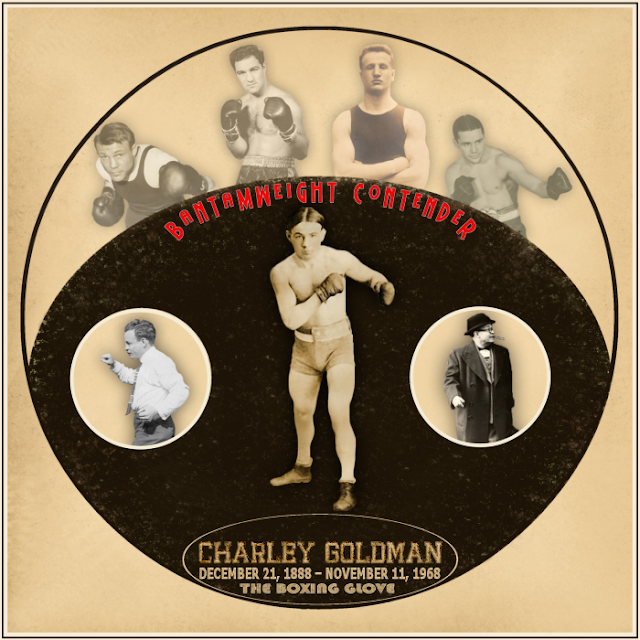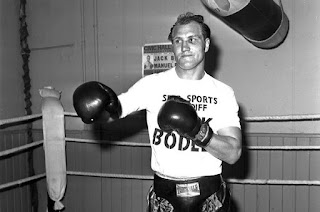By Peter Silkov
Jackie
Graves, nicknamed ‘The Austin Atom’ was a hard-hitting southpaw,
featherweight, who mixed it with some of the best 126-pounders of the
1940s and 50s. Graves was born, John Thomas Graves, on September 12,
1922, in Austin, Minnesota. Following an amateur career, which saw
him win a number of titles, Graves turned professional at the age of
22 in 1944. Graves hard-punching, all-action style made him a big
hit with the fans.
During
his professional career, Graves fought name fighters such as, Harry
Jeffra, Charlie Riley, Luis Castillo, Tony Olivera, Jose Gonzalez,
Victor Flores, Charley Cabey Lewis, Jackie Wilson, Jackie Callura,
Lefty Lachance, Jimmy Joyce, Clint Miller, Spider Armstrong, Harry
Lasane, Harold Dade, Willie Cheatum, Manny Ortega, Bobby Bell,
Humberto Sierra, Teddy Davis, Glen Flanagan, Ernesto Aguilar, and
Manuel Ortiz,
During
the late 40s, Graves was ranked highly in the world by “The Ring”
magazine, yet was never able to secure a shot at the World
featherweight title. The closest Graves came to a world title chance
was when he fought the World featherweight champion, Willie Pep, on
July 25, 1946, in a non-title fight. This is the fight in which Pep
is said to have won a round (the 3rd)
without throwing a punch, but just by dodging Graves' punches, but
this was proven false by several sources who were at the fight.
Various
accounts of this fight say that both Pep, and Graves, were on the
floor. Graves put up a brave display, but was eventually stopped in
the 8th
round.
In
an interview with Jake Wegner, Graves spoke of his greatest memory of
his career.“They all were great. But
my fight with the Featherweight Champion of the world, Willie Pep.
Regardless of the outcome, that was my greatest moment of my career.
I just wish I could do it all over again-all of it. I used to joke
with Willie that his name is Pep, and he has a lot of pep. (laughs)
Lordi, that man never ran out of gas. He was great.”
Graves
fought on until 1956, with his last fight being a 3rd
round knock out defeat to Glen Flanagan on March 22, 1956. Graves'
final record was (82-11-2, 48koes).
Jackie
Graves died on November 15, 2005, after a long bout with Alzheimer's
Disease.
Follow us on Twitter: @TheBoxingGlove and
Facebook: www.facebook.com/theboxingglove
If you are an boxer, amateur or professional, and want us to follow you or tell your story, contact petersilkov@yahoo.com or theboxingglove@yahoo.com
If you are an author and you would like your book reviewed, contact Peter Silkov at petersilkov@yahoo.com or theboxingglove@yahoo.com


















